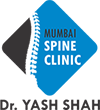Introduction
Back pain is one of the most common health problems worldwide, affecting millions of people daily. Whether caused by herniated discs, spinal stenosis, or degenerative disc disease, chronic back pain can significantly impact daily life. Thankfully, medical advancements have made it possible to treat spinal conditions with minimally invasive techniques like endoscopic spine surgery.
In this article, we will explain what endoscopic spine surgery is, how it works, its benefits, and who can be a candidate for this advanced procedure.
What Is Endoscopic Spine Surgery?
Endoscopic spine surgery (ESS) is a minimally invasive surgical procedure used to treat spine-related conditions without large incisions or extensive tissue damage. Unlike traditional open spine surgery, which requires significant muscle dissection and longer recovery periods, ESS utilizes small incisions and advanced imaging techniques to target and treat affected areas precisely.
Surgeons use a thin, flexible tube called an endoscope, which is equipped with a small camera and light. This allows them to navigate the spine with minimal disruption to surrounding muscles and tissues.
How Is Endoscopic Spine Surgery Performed?
ESS follows a straightforward process:
- Preparation: The patient is given local anesthesia with sedation or general anesthesia, depending on the case.
- Incision: A small incision (usually less than 1 cm) is made near the affected spinal area.
- Insertion of Endoscope: A tube containing the endoscope is inserted through the incision, providing a clear view of the spine on a monitor.
- Treatment: Specialized surgical instruments are inserted to remove herniated disc material, decompress nerves, or perform other necessary corrections.
- Closure: The instruments and endoscope are removed, and the incision is closed with a single stitch or adhesive bandage.
Benefits of Endoscopic Spine Surgery
- Minimally Invasive – Requires only a small incision, reducing scarring and tissue damage.
- Faster Recovery – Most patients can resume normal activities within a few weeks.
- Less Pain – Because there is minimal muscle disruption, post-surgical pain is significantly reduced.
- Reduced Risk of Infection – Small incisions lower the risk of infections and complications.
- Outpatient Procedure – Many patients can return home the same day.
Who Is a Candidate for Endoscopic Spine Surgery?
ESS is ideal for individuals with:
- Herniated or bulging discs
- Spinal stenosis (narrowing of the spinal canal)
- Degenerative disc disease
- Sciatica or nerve compression
- Chronic back or leg pain unresponsive to conservative treatments
However, patients with severe spinal instability or advanced spinal degeneration may require traditional surgery.
Conclusion
Endoscopic spine surgery has revolutionized how spinal conditions are treated, offering a safer, quicker, and more effective alternative to traditional procedures. If you suffer from chronic back pain and have not found relief through non-surgical treatments, consulting with Dr. Yash Shah, a top spine surgeon in Mumbai at Mumbai Spine Clinic, can help determine if ESS is the right option for you.

